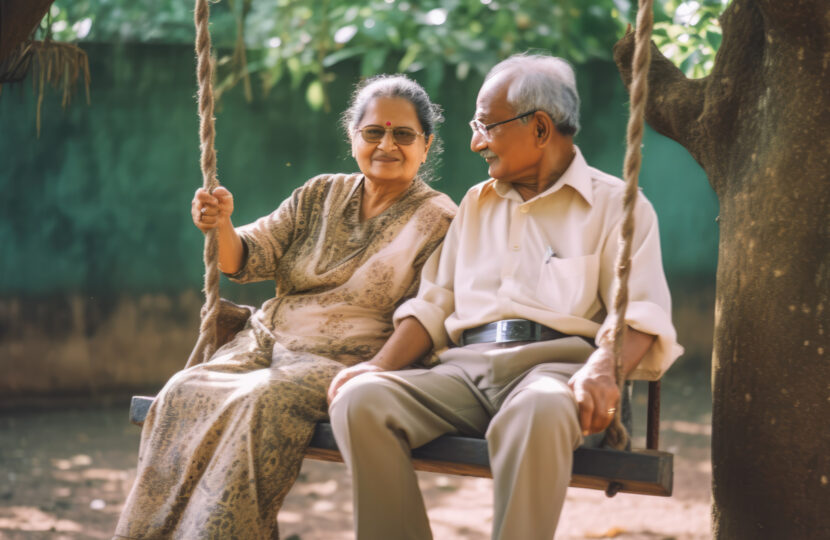Our elders have always been our strength, offering us wisdom and guidance. As they age, they face various health challenges, one of them being urological problems. Today, we will dive deep into this topic, explaining these problems in a way everyone can understand.
Introduction
Growing old gracefully is what we all aspire for. But with age, come specific health challenges that can’t be ignored. One such area of concern is ‘urological problems in elders.’ Let’s understand more about these issues.
What are urological problems?
In simple terms, urological problems are the issues related to our urinary system. This system plays a crucial role in removing waste and excess fluid from our body. Any problem here can be uncomfortable and sometimes painful.
Why are urological problems common in elders?
With age, the organs related to our urinary system might not function as efficiently as they did when we were young. The body undergoes natural wear and tear, making elders more susceptible to urological issues.
What are the different types of urological problems that can affect elders?
Urinary incontinence
- What is it? Urinary incontinence is the involuntary loss of urine. It’s not just a medical issue but can also affect emotional, psychological, and social well-being.
- Why does it happen? The causes can range from simple reasons like a urinary infection to more complex ones like weak bladder muscles, nerve damage, or side effects from medications. Age-related changes in the bladder and weakening pelvic floor muscles also contribute.
- Types: There are different types, including stress incontinence (when you sneeze, cough, or exert), urge incontinence (sudden urge to urinate), and others.
Urinary tract infections (UTIs)
- What are they? UTIs are bacterial infections that can affect any part of the urinary system, from the kidneys to the bladder and urethra.
- Why are elders prone? Elders, especially women, are more susceptible due to a weakened immune system, incomplete bladder emptying, or the use of catheters. Also, the symptoms in elders might be different, often presenting as confusion or behavioral changes.
Overactive bladder
- What is it? This is characterized by a sudden and uncontrollable urge to urinate, even when the bladder isn’t full.
- Causes: It can be due to several factors, including age-related changes, nerve damage, medications, and other conditions like UTIs or diabetes.
- What is it? BPH is a non-cancerous enlargement of the prostate gland, which surrounds the urethra in men.
- Symptoms: As the prostate enlarges, it can squeeze the urethra, causing symptoms like difficulty in starting urination, dribbling at the end of urination, or frequent nighttime urination.
- Why it happens? The exact cause is unknown, but it is believed to be related to aging and changes in the levels of sex hormones.
Prostate cancer
- What is it? Prostate cancer is a malignant growth in the prostate gland.
- Detection: It can be detected early through regular screenings, including prostate-specific antigen (PSA) blood tests.
- Risks: Aging is the most significant risk factor, with the majority of cases seen in men over 65.
- What are they? Kidney stones are hard, crystal-like masses that form inside the kidneys from dietary minerals.
- Symptoms: They can cause sharp pain in the back or side, bloody or cloudy urine, or even nausea and vomiting.
- Why do they form? Various reasons contribute, including decreased urine volume, dietary factors, or certain medications. Staying hydrated can reduce the risk.
Symptoms of Urological Problems in Elders
If any elder you know experiences the following symptoms, it might be due to a urological problem:
- Difficulty in passing urine.
- Frequent need to go to the toilet.
- Sudden urge to urinate.
- Pain during urination.
- Presence of blood in the urine.
- Cloudy appearance of urine.
- Persistent fever.
- Pain in the back or sides.
Detecting and treating urological problems early can prevent complications. The following are common diagnostic methods:
- Physical exam: A doctor’s assessment through touch and observation.
- Urine tests: Checking for infections or other abnormalities.
- Blood tests: To check kidney functions or signs of prostate issues.
- Imaging tests: Like ultrasounds or CT scans to view the urinary tract.
Once diagnosed, the urological treatment suggested will vary depending on the specific problem.
Get Expert Diagnosis and Treatment at Gujarat Superspeciality Hospital
If you suspect a urological problem, don’t delay. At Gujarat Superspeciality Hospital, our adept team of professionals provides accurate diagnoses using the latest medical equipment. Our experienced urologists ensure that every patient receives personalized care, leading to optimal outcomes.
Consult with Our Expert Dr. Pragnesh Bharpoda, to address any urological concerns with the best in the field.
Prevention of Urological Problems in Elders
While we can’t halt the aging process, we can surely take steps to keep urological problems at bay:
- Stay hydrated by drinking enough water daily.
- Limit the intake of caffeine and alcohol.
- Ensure to empty the bladder fully and regularly.
- Maintain personal hygiene, especially in the genital areas.
- Visit the doctor regularly for check-ups, even if there are no evident problems.
Conclusion
For our beloved elders, urological problems might be common but remember, they are treatable and manageable. By being aware and taking timely action, our elders can continue to lead a comfortable and healthy life. Let’s be attentive to their health needs, for they have always looked after ours!
Book an Appointment Today with our specialists and ensure a healthier tomorrow for your elderly loved ones.


